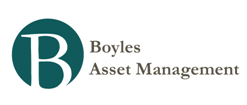The Greatest Deception in the History of Finance - By Kent Thune
So, if wanting more is a natural human behavior and we are deluged daily with enticing messages that encourage and support this behavior, what can be done, if anything, to manage this challenge? To help make my point, I will defer to an anecdote delivered to MBA graduates of
“At a party given by a billionaire on Shelter Island, the late Kurt Vonnegut informs his pal, the author Joseph Heller, that their host, a hedge fund manager, had made more money in a single day than Heller had earned from his wildly popular novel, Catch-22, over its whole history. Heller responds, ‘Yes, but I have something he will never have: Enough.’ “
In summary, the best way to “get rich quick” is to be content with “enough.” What greater tragedy can there be than to chase something for one-half to two-thirds of a lifetime that may not be actually acquired by the means for which you have sacrificed?
“If thou wilt make a man happy, add not unto his riches but take away from his desires.” ~ Epicurus
To conclude, there is no such thing as financial freedom, at least not in the conventional sense of the term, which is the great deception. Paradoxically, the pursuit of financial freedom is closer to slavery than it is liberating. Furthermore, and in my humble opinion, freedom cannot be procured by financial means — freedom most likely lies at the point at which the utility for money begins to diminish — the point at which the basic sources of physical well-being — food, shelter and clothing — have been met. Beyond this point, freedom cannot be procured by financial means, yet millions continue pursuing the idea of financial freedom. This is the deceit. This is the illusion.
True freedom begins by learning contentment — by the realization that you already have “enough” — where the search for pleasure can be replaced by the search for meaning.
....................
I would add the quote below to the list of great quotes in the article linked above:
"What difference does it make how much there is laid away in a man's safe or in his barns, how many head of stock he grazes or how much capital he puts out at interest, if he is always after what is another's and only counts what he has yet to get, never what he has already. You ask what is the proper limit to a person's wealth? First, having what is essential, and second, having what is enough." -Seneca
....................
- Seneca On Freedom
From Moral letters to Lucilius/Letter 51 (Kindle): Fortune is fighting against me, and I shall not carry out her commands. I refuse to submit to the yoke; nay rather, I shake off the yoke that is upon me, – an act which demands even greater courage....
- Seneca Quote
From Moral letters to Lucilius/Letter 44 (Kindle): Suppose, then, that you were not that Roman knight, but a freedman, you might nevertheless by your own efforts come to be the only free man amid a throng of gentlemen. "How?" you ask. Simply by distinguishing...
- Tony Robbins: Money Master The Game, And Interview Link
Tony Robbins is coming out with an interesting book next month. While written for the popular audience, he apparently spent time with the likes of Ray Dalio, Paul Tudor Jones, and Kyle Bass, among many others leading up to writing the book. He discusses...
- Read This If You Want To Be Happy In 2014 - By Scott Adams
I have no expertise whatsoever on the topic of happiness. But I do have a knack for observation and simplification. That’s what I do for my day job as the creator of Dilbert. Today — as some of you are already backtracking on those New Year’s resolutions...
- Happy 4th Of July!
Happy 4th of July to all of you! I'm so blessed to live in a country where I have the freedom to pursue just about anything that I want to go after. I'm also so glad to be in a position to pursue financial freedom. Safe travels to...

